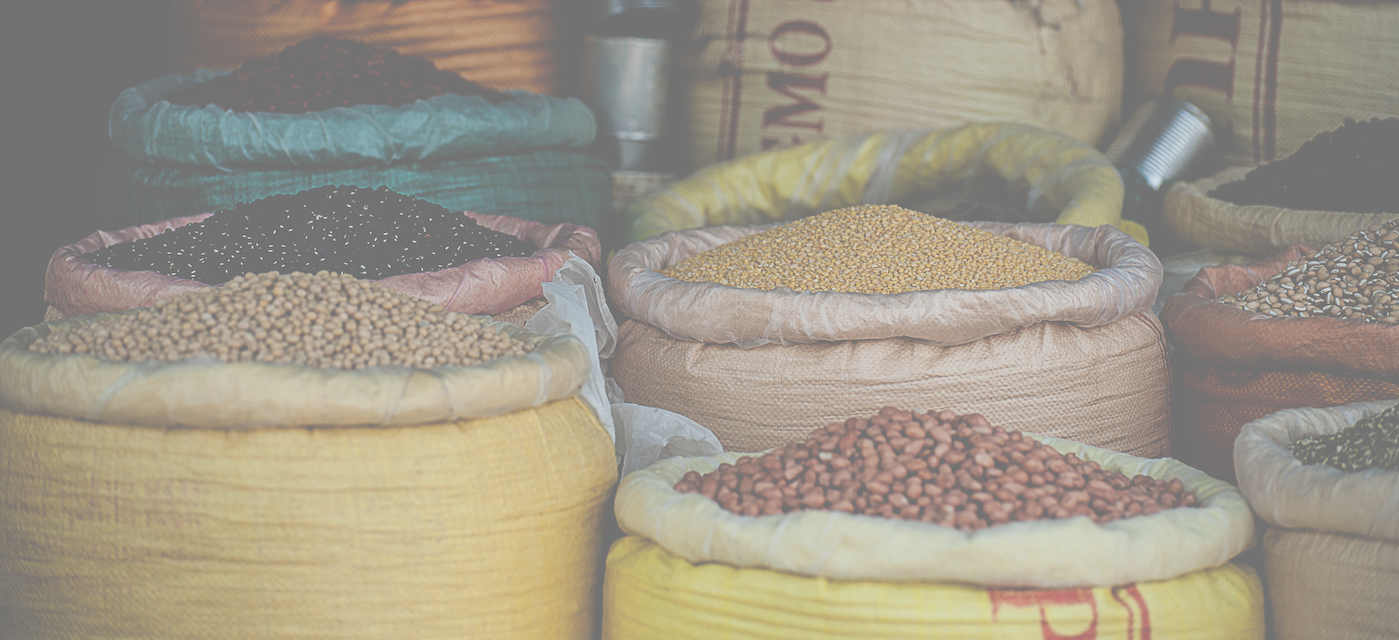
Stay Lean and Build Muscle with Plant Protein
Can you build muscle with plant protein? If you're looking to build muscle, you might assume that animal-based foods and supplements should be your go-to sources for dietary protein. And you might also worry about losing muscle if you cut down—or cut out—animal products. But worry not, for plant proteins pack a serious punch (the answer is a resounding 'yes').
As studies continue to reveal, plant proteins help the body build and maintain lean muscle mass, just like animal proteins do. Each year, more vegan and vegetarian bodybuilders break into the world of fitness and competitive bodybuilding, just as more meat-and-potato athletes open the doors of their diets to let more plants in. Will the modern “meathead” one day be coined a “hemphead?” We would be perfectly okay with that (and it sounds better than “pea brain”).
A Meat and Fried Potatoes Culture

In the United States, we’ve grown accustomed to eating meat-based diets riddled with processed foods and sugars. However, there has been a shift in how people approach food and its origins. There’s great scientific evidence to support the benefits of moving to a whole-food, plant-based diet. The landmark book, The China Study proves that plant-based diets reduce the rates of heart disease, cancer, type 2 diabetes, and many other major illnesses. The study featured in the book concludes that the animal protein casein actually promotes cancer growth. Yikes.
Of course, we aren’t advocating for the abolishment of animal protein from your diet.
But we’re all about eating whole foods and nutrient-rich plant foods. Nowadays, you will find plenty of plant-based vegan foods to help repair and grow your muscles.
And there’s no reason to believe that you need to keep forcing down a ton of whey protein, dairy products, and meat in order to hit your fitness and nutrition goals. With the rise of hemp, there’s never been an easier time to make the switch.
Plant vs Animal Protein
If you watched Rocky take raw eggs straight to the gullet or have picked up an issue of literally any American muscle magazine, you would assume whey protein is the only “whey” to go. Pardon the old, previously discarded liquid cheese. But seriously, the idea of building muscle from plant-based sources alone seems impossible to many.
Let’s do a quick comparison between protein sources. First, it is important to consider the amino acid profile of a protein source. Many animal products serve as complete protein sources, meaning that they include all nine essential amino acids.
Here are a few complete animal proteins:
- Fish, such as salmon
- Red meat from cows, bison, and deer
- Dairy products, including cheese, milk, and whey
- Chicken and turkey eggs
Many plant-based foods are also rich in protein. Here’s a list of complete plant proteins and their sources:
- Yellow split peas (pea plant)
- Hemp seeds (hemp plant)
- Soybeans (soy plant)
- Buckwheat seeds (buckwheat plant)
- Quinoa seeds (quinoa plant)
Beans, lentils, and peanuts can be combined with grains, such as wheat, rice, and corn, to create a complete protein. Hemp, soy, and pea protein are considered to be the best plant proteins for dietary supplementation. Quinoa and buckwheat are less protein-dense than both hemp and peas; however, they make great additions to any diet.
Many people are sensitive to soy. And yellow split peas must be processed extensively to create pea protein powder. To make hemp protein powder, no chemical processing is required. It merely involves mechanical cold pressing and milling. Pound for pound, hemp protein contains as much protein as beef. Did we mention that the Arnold is a vegetarian? Of course, when he was competing, he ate about every possible type of animal protein. Would he have switched things up had he been born 30 years later? The world may never know.
Is Plant-Based Protein Supreme? You Be the Judge

From a digestibility standpoint, hemp is a winner, especially when considering its high fiber content. While hemp and other plant proteins lack B-12 and iron, hemp is loaded with omega fatty acids, as well as muscle-building glutamine and blood-pumping arginine.
Animal meat is packed with nutrients. If you eat various animal meats, you’ll likely take in all the amino acids you need to produce bodily proteins, in addition to B12, niacin, thiamine, B5, B6, and B7, as well as vitamins A and K. Those eating primarily plant-based foods may need to supplement their diet with B12 and Iron, among other vitamins and minerals. However, ounce for ounce, plant-based proteins pack far more nutrients into fewer calories. This is a huge advantage for those looking to be in a calorie deficit. Plus, animal-based protein is often loaded with saturated fats and cholesterol.
So which is better, animal or plant protein? Well, according to a recent study conducted by the American Journal of Clinical Nutrition, animal and plant protein have an equal impact on the body. The study involved 3,000 participants and measured overall lean muscle mass, bone density, and quad strength. While those with high-protein diets scored higher in every category, the sources of protein had no impact on musculoskeletal health. Overall, participants with a higher daily protein intake were better off.
No matter how you get your protein, be sure that you are getting an adequate amount based on your fitness and nutritional goals.
Hemp: The Ideal Plant-Based Muscle Builder

You’ve heard all the fuss about plant protein supplements. But you don’t want to waste your time on anything that isn’t going to support your fitness goals. There’s nothing wrong with that, but there’s a good chance hemp protein is exactly what you need to add to your diet to support those goals.
Hemp protein is popular among vegan powerlifters, and their carnivorous counterparts are catching on. Hemp is nutrient-dense, which is key for building muscle without gaining too much fat. Hemp contains 20 amino acids, including all of the essentials. Specifically, it is a great source of glutamine, which is beneficial for building muscles. Another crucial amino acid it contains is leucine, a key component of muscle growth.
Furthermore, there is a lot of evidence to suggest that a high-protein diet keeps you feeling satisfied and less hungry for longer. Hemp protein is a great option because it is dairy-free, soy-free, and egg-free, so people with allergies can easily add it to their diets. It also is high in fiber, which is also beneficial for weight loss.
Will Plant-Based Protein Aid Metabolic Conditioning and Muscle Recovery?
It’s commonly known that carbohydrates are the primary fuel for endurance athletes, but that doesn’t mean that protein isn't important. Protein is essential for forming hemoglobin, which is responsible for carrying oxygen to exercising muscles. Protein also helps athletes retain fluids. Additionally, protein is imperative to building muscles, which is important for endurance as well. In contrast to bodybuilders, who use protein to gain more muscle mass, endurance athletes need protein to repair the continual damage to their muscles. Hemp is an advantageous protein source because it is light and easy to consume, meaning it won’t weigh you down.
If you are recovering from an injury or training for a sport that requires you to train daily, recovery is important to you. Most people associate carbohydrates with recovery, but it’s imperative to get protein for recovery as well. Hemp protein is a great tool for recovering athletes because it contains all of the essential amino acids. These play a powerful role in muscle growth, ensuring that all damage done during your workout is repaired.
All in all, hemp is a great plant-based source of protein that can help your health in a variety of ways, supporting your fitness goals. If you hit your goals by primarily eating animal proteins, great! Just consider the long-term benefits of plant-based proteins.
For many, the best route is one of balance. It never hurts to add more plants to your diet.
And if you’re looking for a delicious way to incorporate hemp into your diet, try Hemplete hemp protein powders or bars. Our products are all-natural, non-GMO, and tasty to boot. Shop the Cashew Berry, Peanut Butter, and Cocoa x Coco flavors.



Leave a comment
This site is protected by hCaptcha and the hCaptcha Privacy Policy and Terms of Service apply.